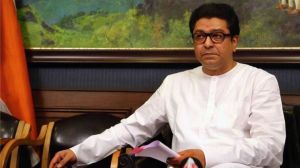Iraq: Behind the smokescreen
In view of the overwhelming military and technology superiority of the US forces, not many of us strategists had given the Iraqi forces the ...

In view of the overwhelming military and technology superiority of the US forces, not many of us strategists had given the Iraqi forces the capability of holding out for more than a few days.
The asymmetry was even more pronounced due to the fact that Iraq8217;s Air Force was virtually non-existent or incapable of providing support to the ground forces. Equally, their long-range missile capability had been severely eroded by the restrictions imposed by the inspection regime.
The Iraqi forces have cleverly avoided trying to fight conventional set-piece battles, knowing that without adequate aerial and artillery support such fighting is suicidal.
They drew the American and British forces into urban fighting, where the overwhelming equipment and technology capability does not confer disproportionate advantages. This ensured that the Coalition Forces did not have as smooth an operation as they would have liked.
The coming weeks and months are not going to be comfortable for the US. It may well be a period of reckoning in some ways for the arrogance of unilateralism that they have displayed.
In the weeks and months leading up to the launching of operations, there was little doubt that the US would take military action against Iraq. The only real question was when it would be taken, and whether it would be a unilateral action or one endorsed by the international community represented by the UN Security Council. In the event, the US, unquestionably supported by the UK and a few other countries, resorted to unilateral action, ignoring the opinion of most countries and their people, including their own. Such unilateralism in itself should hardly be surprising. And the international community, including countries like France, Germany and, to a lesser extent, Russia has a certain responsibility.
NATO intervention in Kosovo, without UN Security Council, was endorsed as were the efforts to remove the then Yugoslav President. And this was by the earlier US administration. This is not to suggest that one held a brief for the person. Just as there would be few people who hold a brief for Saddam Hussein, there would not be many that would shed a tear for Milosevic.
But if unbridled military and economic power provides the licence for the political leadership of a powerful country to determine who should or should not be in power in other countries, the international system cannot be sustained. There is much rhetoric and posturing in the media that the purpose of American action in Iraq is to restore democracy to the Iraqi people, to remove weapons of mass destruction and so on. No one with even the slightest intelligence can be led to believe that the political leadership of the US is motivated by such altruistic intentions.
The Americans would have gone into Iraq even if Saddam had fled the country. Maybe not with bombs and cruise missiles, but certainly with large numbers of ground troops to establish American authority over the country. The reasons for this are not far to seek. The US needs to establish a secure and stable base for itself in West Asia. The 9/11 events clearly revealed to the Americans that they cannot depend on an unpopular and decadent regime like the one in Saudi Arabia, which, while professing friendship and cooperation with the West, was the fountainhead of militancy and extremism, together with the military of Pakistan.
It was obviously evident to the US that the Saudi regime is going to collapse sooner rather than later. The only two countries in the Arab world that display a degree of liberalism and modernity in society are Egypt and Iraq. There was no excuse to invade Egypt. But Iraq provided all the excuses and the opportunities. The American view no doubt is that post-Saddam, their presence is essential if the country is to be kept together; what with its make-up of Shias in the South, Sunnis in the centre, and the Kurds in the North. Equally, a substantial and long-term American presence in Iraq allows much flexibility in dealing with another perceived threat to the US, namely Iran. And most importantly, in providing support in the volatile region to Israel. Finally, one must not of course discount the 8216;8216;mouth-watering8217;8217; prospects of control over Iraq8217;s large reserves of oil by American oil companies.
There is not much point indulging in breast-beating over what has happened. The Americans have done what they possibly considered was best in their national interests. At least some in the administration feel they are much too powerful to take note of the opinions, sensitivities and concerns of others in the international community. They are out to prove that as the sole superpower they will run the world. There is little doubt that the US will ultimately secure a military victory. But how how long will it take and at what cost will it be achieved?
We seem to have arrived at a defining moment in terms of the emerging world order. As the body bags are counted, the prisoners repatriated and the wounds of the Iraqi people treated, I have little doubt that saner counsel will prevail in American society, sections of which will recognise that they have to conform to international norms and co-exist with the rest of us. Whatever that be, it is a matter of some comfort that a number of countries like France, Germany, Russia and to some extent China, as also many others, have at last mustered the courage to pose a challenge to the arrogance of some sections of the American leadership.
To that extent, I feel that the UN has not been consigned to the dustbin of history. It may well emerge stronger from the present imbroglio. There can be absolutely no doubt that the various agencies of the UN will need to play a major role in the reconstruction of Iraq and its society, as also many of its neighbours. But this will be undertaken not as largesse distributed by the US but as recognition of the role of the international community represented by the UN.
Many compromises and adjustments may be required. In so far as India is concerned, it is essential that we do not resort to our classic moral posturing that has got us nowhere over the years. We need to take realistic positions consistent with our supreme national interests. We cannot obviously endorse the unilateral US action. But we need not jump on the rooftops and indulge in meaningless rhetoric. It may be useful to take a few lessons from countries like France, Germany, Russia and China. We must make our point in a dignified and mature manner, in the knowledge that when the reconstruction of Iraq is to take place we will have a role to play.
Not as a matter of largesse handed out by anyone, but because of our traditional cultural and societal links. One can only hope that at this defining moment in the evolution of a new world order we shall be able to display the statesmanship that is required.
- 01
- 02
- 03
- 04
- 05






























